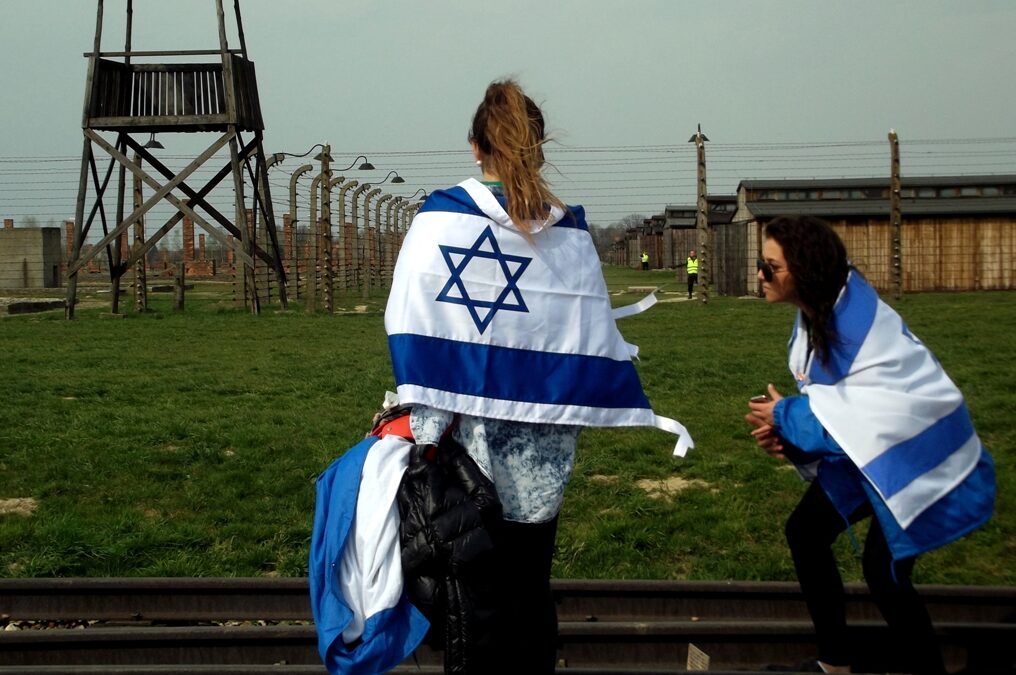Poland’s foreign ministry has summoned Israeli ambassador Yacov Livne to explain recent comments he made claiming that the Polish government is blocking Israel from resuming educational trips to Holocaust sites. Livne is “misleading the public”, says a Polish deputy minister.
The two countries only agreed to restore their ambassadors to one another a few months ago, after they had previously been withdrawn following a conflict over the restitution of property previously belonging to Holocaust victims and survivors.
The latest episode began last Thursday, when Livne was among the speakers at an event commemorating the anniversary of an uprising in 1943 by prisoners at Sobibór, a German Nazi extermination camp in occupied Poland.
At the end of his address, the Israeli ambassador said that “it is absolutely incomprehensible to us that the Polish foreign ministry prohibits our citizens, especially young people, from coming to Poland, to such places as Sobibór or Auschwitz”, reported the Gazeta Wyborcza daily.
“This is certainly not conducive to proper relations and the possibility of historical education of young people of Israel, who should know the tragic past of their ancestors,” he continued, before calling for greater cooperation and dialogue.
Ambasador Izraela: Polski rząd uniemożliwia naszej młodzieży odwiedzanie miejsc tragedii Holocaustu https://t.co/wG72Cd1JWX
— Bartosz T. Wieliński 🇵🇱🇪🇺🇺🇦 (@Bart_Wielinski) October 14, 2022
Before the pandemic, tens of thousands of Israeli youths visited Poland every year on Holocaust education trips. German-occupied Poland was where the Nazis murdered the majority of the six million Jews killed in the Holocaust, almost half of whom were Polish Jews.
However, in June this year, Israel announced that it was cancelling such trips because the Polish government was trying to “dictate what was and wasn’t allowed to be taught”. In response, a Polish deputy foreign minister, Paweł Jabłoński, confirmed that Poland believes the trips “require changes”.
In their current form, they “strengthen false stereotypes”, resulting in “Israeli youths often returning with negative feelings towards Poland and Poles”, wrote Jabłoński. He also said that armed guards who accompany the Israeli groups often behave “aggressively”.
Israel has cancelled Holocaust education trips to Poland, claiming its government "wanted to dictate what was and wasn’t allowed to be taught".
A Polish deputy foreign minister says the trips currently "strengthen false stereotypes" and "require changes" https://t.co/DBiASjOdTS
— Notes from Poland 🇵🇱 (@notesfrompoland) June 16, 2022
On Friday, the day after Liven’s comments at Sobibór, Jabłoński took to Twitter to outline the Polish foreign ministry’s official position, as well as to criticise the Israeli ambassador’s remarks and announce that he had been summoned to the foreign ministry for talks.
Jabłoński wrote that Poland is “ready to receive Israeli groups even from tomorrow” but that “security rules should be the same as in other similar countries, i.e. without armed guards”.
If Israel agrees to the latter demand, tours can resume even while negotiations continue between the two governments over a “comprehensive agreement that systematically regulates issues relating to the visits”, said Jabłoński, describing this as a “far-reaching gesture” of goodwill by Poland.
3. Głównym celem pozostaje wynegocjowanie kompleksowej umowy, regulującej systemowo kwestie dot. wizyt.
Ale jesteśmy gotowi, by wycieczki ruszyły już teraz (bez uzbrojonej ochrony) – a równocześnie trwały dalsze negocjacje.
To ze strony Polski daleko idący gest wobec Izraela.
— Paweł Jabłoński (@paweljabIonski) October 14, 2022
With regard to those negotiations, Jabłoński noted that Poland’s position remains the same as the one it outlined in August.
At that time, the Polish government said that it wants visiting Israeli youths to have “the chance to get to know the rich history and present of Poland, including in the field of Polish-Jewish relations, as well as the possibility of direct meetings with Polish peers”.
Many in Poland, including the current national-conservative ruling Law and Justice (PiS) party, accuse Israel of inaccurately presenting Poles as perpetrators of the Holocaust. Critics of PiS, however, accuse the party of itself whitewashing history by downplaying Polish crimes against Jews.
In his tweets on Friday, Jabłoński expressed “regret that ambassador Livne has decided to communicate with the foreign ministry through the media and, in addition, to mislead the public as to the reasons why the trips are not taking place”.
The Polish minister said that Livne would be summoned to the ministry on Monday “to clarify the situation”. However, on Sunday Jabłoński revealed that the meeting had been postponed to Wednesday because Monday and Tuesday are the Jewish holidays of Shemini Atzeret and Simchat Torah.
As well as the issue of educational trips and property restitution, Polish-Israeli relations have also been damaged in recent years by a dispute over a law introduced by Poland criminalising the false attribution of German crimes to the Polish nation or state. Under US pressure, the law was later partially withdrawn.
Main image credit: Piotr Drabik/Flickr (under CC BY 2.0)

Daniel Tilles is editor-in-chief of Notes from Poland. He has written on Polish affairs for a wide range of publications, including Foreign Policy, POLITICO Europe, EUobserver and Dziennik Gazeta Prawna.




















